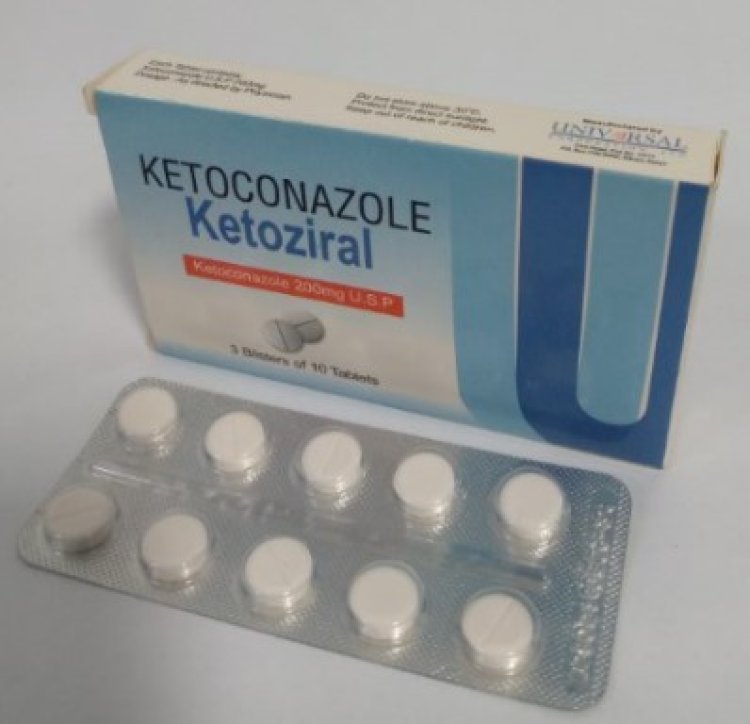Drugs That Can Make Men Infertile
Infertility can be caused by a variety of factors in both the male and female reproductive systems. However, explaining the causes of infertility is not always possible. Recently, there have been a lot of cases that have sparked many reactions across the world concerning male infertility.
One of the major causes of male infertility experienced is the use of some drugs that affect the reproductive system.
As a man, you need to be cautious with your intakes since they mostly create an effect on your body.
Drug use, whether legally prescribed or illegally obtained, may have a negative impact on male fertility. The range of these drugs is wide, ranging from legal to illegal. Even clinically prescribed drugs, when moderated, can have the same effect.
If you are using these drugs and are having difficulty starting a pregnancy, you should seek medical attention immediately. Some of the drugs are known to cause low-quality sperm and male infertility.
Here are some drugs that as a man you should avoid since they may have a severe adverse effect to our system.
1. Alcohol
Alcohol is a toxic and psychoactive substance that can lead to addiction. Alcohol has become a new routine to many nowdays. Some men have also been seen to spend almost all their income on alcohol rather than invest or purchase on any other item.
More than 10 to 14 drinks per week may reduce testosterone production, increasing the rate at which testosterone is cleared from the bloodstream and increasing a man's oestrogen levels. All of these can lead to a drop in testosterone levels, which can have an impact on sperm production.

Man drinking. PHOTO FILE
According to Global Study, no amount of alcohol is good for your health. So as a man you should watch your drinking habits and you can also try alscohol free days on some occassions.
2. Tobacco
Tobacco use has been linked to a variety of serious health problems. Babies in smoking households are much more likely to develop serious respiratory illnesses such as severe asthma, pneumonia, and recurrent ear infections.

Tobacco Smoking. PHOTO FILE
Smokers in the home have also been linked to sudden infant death syndrome (SIDS). Smoking also has a negative impact on sperm production and movement. Couples who are trying to conceive should stop smoking for these reasons.
3. Marijuana
Marijuana contains tetrahydrocannabinol (THC), which may reduce sperm production and weaken sexual drive by interfering with testosterone production. THC may also have a direct negative effect on sperm movement, resulting in infertility or sub-infertility.

Marijuana smoking. PHOTO FILE
4. Chemotherapy
Chemotherapy is a medication that uses strong chemicals to kill rapidly growing cells in your body. Chemotherapy is most commonly used to treat cancer because cancer cells grow and multiply much faster than the rest of the body's cells.
Men who are receiving chemotherapy medications may experience infertility. This is because all cancer drugs inhibit sperm production.
Men may resume sperm production within two years, depending on the type of chemotherapy drug used and the duration of treatment.
Many men's sperm production never recovers, and they become infertile. If you are about to begin chemotherapy, talk to your doctor about freezing your sperm before you begin.
5. Anabolic Steroids
These are steroidal androgens that include both natural androgens like testosterone and synthetic androgens that are structurally related to testosterone and have similar effects.
Anabolic steroids are commonly abused drugs that are used to increase muscle mass and/or reduce body fat. Anabolic steroids include testosterone. Non-competitive athletes and non-athletes are increasingly using these drugs for fitness purposes. Unfortunately, anabolic steroids may be present in fitness and muscle-building dietary supplements obtained from less reputable sources.

Use of Anabolic steroids. PHOTO FILE
Anabolic steroids harm male fertility in the same way that testosterone does, by interfering with the hormone signals required for sperm production. The amount of harm done depends on the drugs, the dose, and the length of time a man takes them.
Men are advised not to use anabolic steroids due to the strong negative impact on male fertility and other health concerns associated with these substances.
6. Ketoconazole
Ketoconazole is an antifungal medication that is used to treat fungal infections. This medication is prescribed for the treatment of fungal infections. It is commonly applied to the skin in the form of a cream, ointment, or powder. There is no evidence that using ketoconazole on the skin harms male fertility. Ketoconazole, when taken as a pill, reduces testosterone production and increases sperm production.

Ketoconazole pills. PHOTO FILE
To protect your fertility, you can practice the following :
- You should not smoke.
- Limit or avoid alcohol consumption.
- Avoid using illegal drugs.
- Discuss with your doctor any medications that may have an effect on sperm count.
- Keep a healthy weight.
- Heat should be avoided.
- Control your stress.
- Avoid pesticides, heavy metals, and other toxins.
Male infertility treatments include surgery. A varicocele, for example, can often be surgically corrected, as can an obstructed vas deferens.



























